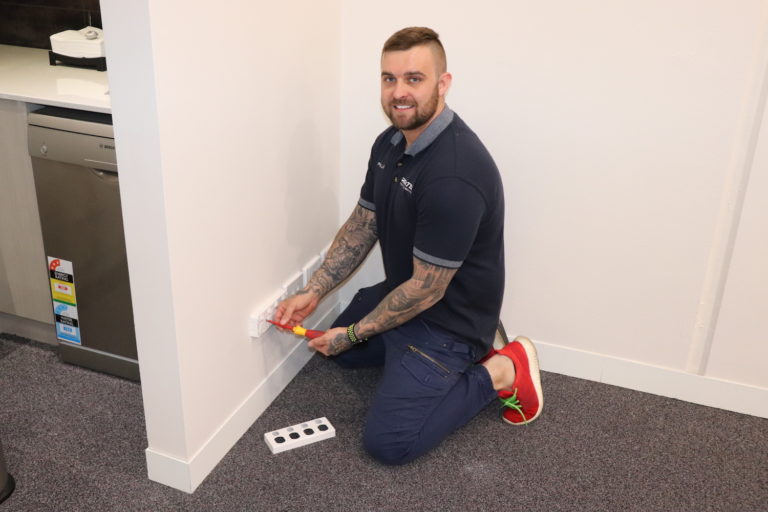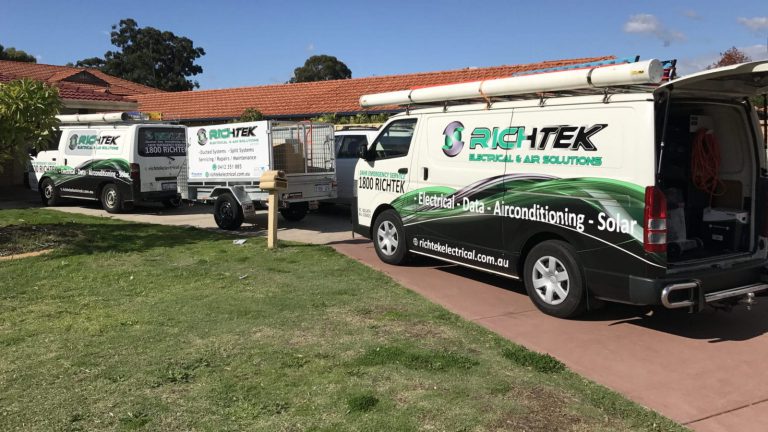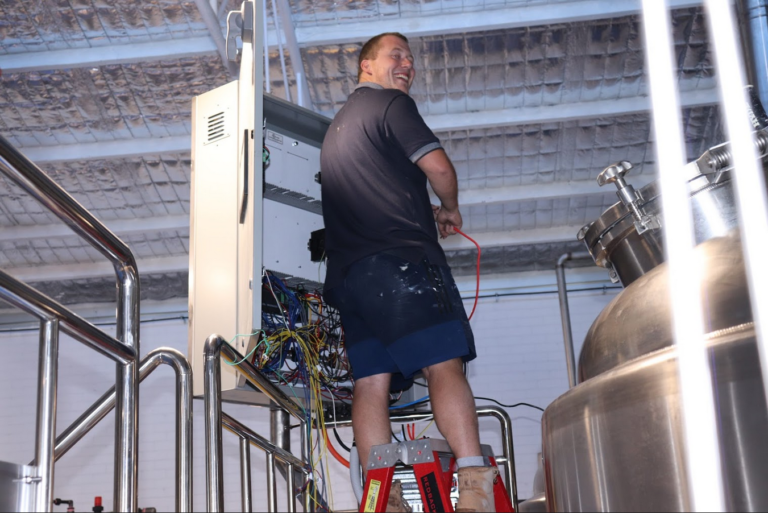Just because something isn’t immediately and visibly wrong doesn’t mean that your electrical system is well off. The electrical system of your house is part of its inner workings, and requires a trained professional to properly care for it. Just as new and improved electrical codes are being added every day, the demand for power consumption grows too, and that might mean older homes can be hard pressed to keep up with the times. Although older homes have a rustic charm that just isn’t replicated in today’s newer builds, it’s best to keep the home and its inhabitants safe. New or old, here are five signs that you ought to call an electrician.
1. You are often left in the dark, literally, or deal with flickering lights.
Inconsistent lighting is a big problem, more than just the inconvenience it might seem to be. When you use an appliance, a hairdryer for example, does it cause the vanity lamp to pause? If the air conditioning switches on or other appliances power up, like the fridge, do the ceiling lights dim? Many of these motor driven appliances require a substantial amount of current, and ought to be wired on dedicated circuits. The above issues can occur when they aren’t. If even small appliances are causing interruptions, a simple solution could be to just add a 20-amp line to service them. However, it’s best to get a professional’s opinion.
2. There’s a configuration resembling an octopus at many outlets.
If strip plugs and other additions are strangling your outlets, not only is it creating an unwieldy sight of cords, but your electrical system is working beyond capacity. This mostly has to do with how the need for power keeps increasing. Back when many older homes were built, current was not a popular thing. Today’s electronics and appliances make everything quite convenient but mean that additional circuits fitted with the proper receptacles are needed to deliver power safely and restore order to the home.
3. Three into two won’t go.
Three prong outlets are usually only used in things that require a serious grounding connection, but even something as simple as your vacuum may fall into this category. Many older homes are fitted with outlets that can only accept two-pronged plugs rather than three-prong grounded plugs. This is a bigger issue that being unable to hook up a toaster or microwave. It could be an indicator that your electrical wiring system is not fully grounded, meaning that you aren’t completely safe. Electricity and current are nothing to mess around with. It only takes one accidental brush to know that for fact.
4. Rug bumps mess up the carpet.
Often, cords can be routed along the wall or under rugs and furniture. The availability and layout of the outlets will often determine how functional the room can be, and how it will be set up. If you insist on a layout that doesn’t mesh with the layout of your outlets, it could cause your living room to look like a mess of tangled wires running under everything. This is more dangerous than just a trip hazard. More outlets are required, and this can be backed by if some of those wires are extension cords due to outlets being too far apart. Extension cords ought to be saved for outside lights and power tools, not used indoors to make the TV work.
5.You can feel the warmth or tingles from electrical currents.
Do outlets, switches or other electrical- system surfaces feel warm to the touch? Do you get a mild shock when touching a switch or outlet? Are there black marks on the switch plate, switch terminals, wire ends, or possibly even on the wall? With the increasing demands for power supply, these are more visible signs that you need to call an electrician. Signs like these indicate that the circuit might be bearing too much demand, or they could be indicative of a far more complex and hazardous issue. If your home was built any time between 1965 to 1975, it may even have aluminium wiring. This is no longer a safe option, and if you have it in your house, be sure to have it checked regularly.
Whether your home is newly built or a historic must see, the electrical and wiring system is something important to maintain. Especially for an older house, there is the risk that the wiring does not comply with modern safety standards. For your own peace of mind, have a properly licensed electrician inspect it to make sure that your home is up to current code safety standards. And if it’s not, then call an electrician to help you get wiring that is.















